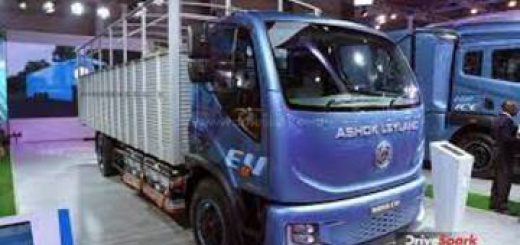Amazon Partners with C40 Cities to Launch Electric Truck Testing Project in India
In a pioneering effort towards sustainable logistics, The Climate Pledge—co-founded by Amazon—and C40 Cities have kicked off the Laneshift project, which aims to test the feasibility of long-range Electric Trucks on the 350-kilometer Bengaluru-Chennai highway corridor. This initiative, which involves leading players like Ashok Leyland, Billion-E, Chargezone, and others, marks an important step in demonstrating electric vehicle (EV) technology in the Indian shipping sector… The project’s first phase focuses on deploying 20 heavy-duty Electric Trucks manufactured by Ashok Leyland with a payload capacity of 55 tonnes.
The trucks will operate on National Highway 48 for six months. Collecting operational data in real-time to assess electric freight solutions’ technical, financial, environmental, and social feasibility. Using ChargeZone’s charging infrastructure, Amazon and its partners aim to explore the practical implications of the transition to electric freight transport. This sets a precedent for environmentally friendly logistics. Not only in India but all over the world.
The Lane Shift initiative launches in 2023 and focuses on developing a network of connected electric vehicle freight highways across India. By collaborating with various stakeholders such as logistics service providers, original equipment manufacturers, and charging point operators The project seeks to accelerate the adoption of Electric Trucks on Indian roads. Abhinav Singh, Vice President, Operations, Amazon India, said, “India’s highways Especially the road between Bangalore and Chennai. It provides a great opportunity to offer Electric truck solutions. “This partnership is critical in transforming the road freight sector and accelerating the transition towards net zero. Transportation costs that emit greenhouse gases.
Read More:- UltraTech Expands Electric Truck Fleet for Sustainable Logistics
This is because the demand for road freight transport is increasing in India. The number of medium-duty trucks will increase significantly, from 4 million in 2022 to nearly 17 million by 2050. Today, even though trucks account for only 3% of vehicles on India’s roads, it has reached this proportion, accounting for 34% of carbon dioxide emissions. It contributes more and up to 53% to particulate matter emissions in the transport sector. Tackling these greenhouse gas emissions is critical to achieving India’s ambitious net zero goal by 2070.
The project outlines that if electric medium-duty and heavy-duty trucks were to handle a significant portion of freight journeys along the Bengaluru-Chennai route by 2035, it could potentially eliminate 231,000 tonnes of CO2 emissions, alongside generating fuel cost savings amounting to $94 million. This shift would not only contribute to decarbonizing India’s freight sector but also foster improved air quality and public health for communities near freight routes.
Marking the culmination of a year-long collaboration with insights from more than 50 businesses, financial institutions, and government agencies, the initiative ultimately emphasizes the importance of e-trucks in achieving a cleaner future for road transportation in India. Looking ahead, the project’s findings will guide the development of a national EV Highway Roadmap for India—transitioning from demonstration to scalable solutions for electric freight.
Kartikey Hariyani, Founder & CEO of Charge Zone and Billion-E, expressed enthusiasm about the collaboration under the Laneshift initiative, indicating its potential to revolutionize India’s transportation ecosystem. With its far-reaching implications, the project is poised to inspire a transformation in logistics and encourage a more sustainable future for freight transport across the nation.
Reference By:- https://www.aboutamazon.in/




Recent Comments